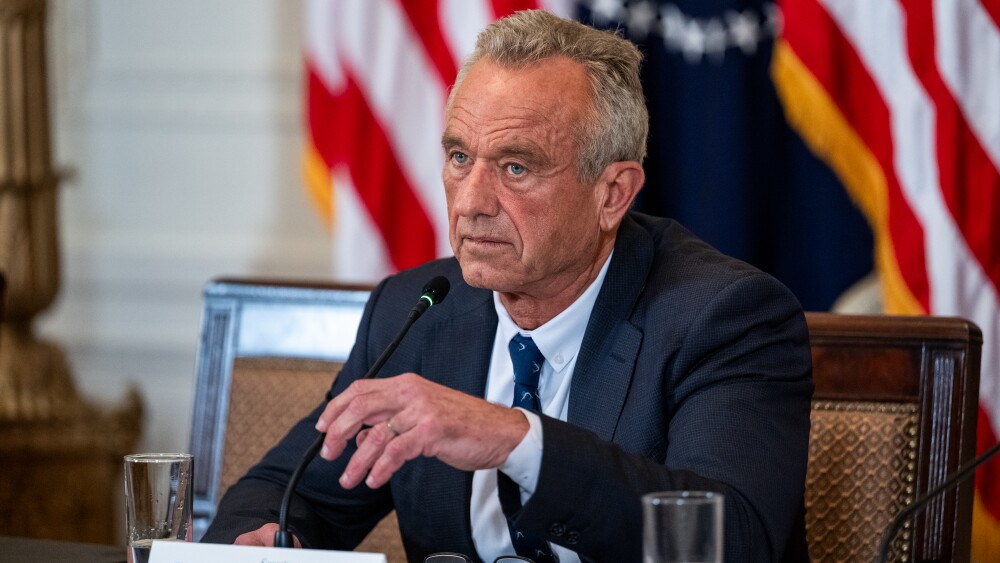The last day of February has been designated as Rare Disease Day in Massachusetts to call attention to the public health issues associated with rare diseases, which affect nearly 30 million Americans and countless others around the world.
The Commonwealth joins a coalition of organizations recognizing the day, being coordinated by the National Organization for Rare Disorders (NORD), that includes patient organizations, professional societies, government agencies, medical researchers, and pharmaceutical and biotechnology companies.
Speakers at the event included: Blair Van Brunt, President of the Shwachman Diamond Syndrome Foundation and the parent of a child that disease; Sen. Karen Spilka and Rep. Joseph Wagner, co-chairs of the Massachusetts Biotech Caucus; Dr. Alan Beggs, Director of the Manton Center for Orphan Disease Research at Children's Hospital Boston; Jose Carlos Gutierrez-Ramos, Senior Vice President and head of the BioTherapeutics Research Group at Pfizer; Jonathon Connolly, patient (dystrophic epidermolysis bullosa); Blyth Lord, parent & founder of Cameron & Hayden Lord Foundation (Tay-Sachs); and Dr. Seng Cheng, Genzyme’s Head of Research and Early Development for Rare Diseases.
“The Massachusetts biotechnology community is at the forefront of research to discover new therapies and cures for rare diseases,” said Robert K. Coughlin, President and CEO of MassBio. “We are proud to call attention to their efforts, and to the importance of supporting investment in early stage research to solve the special challenges facing patients with rare diseases and their families every day.”
"Feb 29th - a rare day for a rare disease day celebration! How auspicious,” said Blair Van Brunt, President of the Shwachman-Diamond Syndrome Foundation and the parent of a child with that rare disease. “Rare disease can be isolating to patients, emotionally and financially draining on the caregivers and costly to all tax payers. Creating awareness and hopefully better treatments, legislation and products for this community helps us realize that helping one, helps all.”
A rare disease is one that affects fewer than 200,000 Americans. According to the National Institutes of Health (NIH), there are nearly 7,000 such diseases affecting nearly 30 million Americans. As many as 1 in 10 Americans suffer from a rare disease.
“This is an important day for recognizing diseases like ALS,” said Steve Perrin, Ph.D., CEO and Chief Scientific Officer at the ALS Therapy Development Institute, a Cambridge, MA-based nonprofit biotechnology research center. “Since ALS is deemed a rare disease, the hard work falls onto non-profit organizations like ours. While we have made new discoveries and moved new potential treatments toward the clinic, more attention to this disease is desperately needed. We join in solidarity with those in the fight against rare diseases to raise awareness of these diseases and the urgent need for cures.”
“Pfizer is committed to rare disease research and proud to have our scientists working closely with Massachusetts biotechnology community to further research in these areas. Today unites us all as part of that community dedicated to bringing change to those lives affected by rare disease -- one of which Pfizer is proud to be a part,” said Jose Carlos Gutierrez-Ramos, head of Pfizer’s BioTherapeutics research group.
Most rare diseases still have no treatment. Of the 7,000 listed on the NIH website, only about 200 have FDA-approved treatments. Individuals and families affected by rare diseases feel alone and forgotten by our nation's healthcare system, and often have to fight their own battles to obtain needed treatment and services.
“Recent advances in genomics and biology are giving us the ability to tackle the most challenging of diseases, including rare cancers,” commented Jonathan Lewis, MD, PhD of ZIOPHARM Oncology in Charlestown. “ZIOPHARM, and the many members of the Massachusetts biotechnology community, continue to innovate toward cures for rare diseases, and remain driven by the goal of helping the individual patient.”
“Rare disease awareness is of great importance to my family and many others around the world,” said NephCure Board Member Kathleen Broderick, whose son suffers from the rare kidney disease, Nephrotic Syndrome. “We at NephCure are confident that if more funding was dedicated to research, effective treatments and even a cure could be found.”
There are many pressing policy issues facing patients and families living with rare diseases including:
- protecting insurance reforms, such as the elimination of annual and lifetime insurance caps
- eliminating barriers to access to treatment, including the prohibition on co-pay assistance programs
- achieving coverage parity of medical foods for rare inborn errors of metabolism, consistent with coverage standards for other life-saving treatments.
“For 30 years, Genzyme has been supporting patients through pioneering new treatments, free drug programs and through ongoing partnerships with patient organizations that serve the rare disease patient community,” said Genzyme’s Head of Rare Diseases, Rogerio Vivaldi, M.D. “We are delighted to celebrate International Rare Disease Day by commemorating the progress that has been made and honoring the commitment we and many others share to improving the lives of patients and families affected by rare diseases.”
“Patients and their families make the most passionate advocates. And when they, and disease-focused family foundations, work together, pool their funds, and align their efforts in one direction, the impact can be truly transformative,” said Susan Kahn, Executive Director of the National Tay-Sachs & Allied Diseases Association.
This year, Rare Disease Day will also highlight the unique partnership that exists among the patient community, the National Organization of Rare Disorders, government entities such as the NIH Office of Rare Diseases and FDA Office of Orphan Products Development, medical professionals, researchers, and companies developing orphan products.
"Massachusetts leads the country in both academic and commercial research and development into the causes and treatment of rare diseases, and our successes often have far reaching consequences for all our citizens. Rare Disease Day is a wonderful opportunity to celebrate and renew our commitment to improving the lives of every patient and family member with a rare disease," said Dr. Alan Beggs, Director of the Manton Center for Orphan Disease Research at Children's Hospital Boston.
Massachusetts organizations are also recognizing Rare Disease Day 2012 with events and announcements throughout the day. Lotus Tissue Repair, a biotechnology company developing the first and only protein replacement therapy for the treatment of the rare genetic disorder dystrophic epidermolysis bullosa (DEB), will support the launch of the first patient-reported international registry for EB - www.EBCare.org - to provide physicians and researchers with valuable information on the prevalence, diagnosis, symptoms, medical care and social and financial burden of EB.
“We are proud to stand with the Commonwealth of Massachusetts and our colleagues at MassBio, NORD, and across the life sciences industry to call much-needed attention to Rare Disease Day and to support all of the patients battling with rare and orphan diseases," said Mark de Souza, Ph.D., president and chief executive officer of Lotus Tissue Repair. "We are hopeful this registry will help accelerate the development of safe and effective EB treatments for patients."
Genzyme employees who, for the past several years, have run the Boston Marathon to raise funds for NORD's rare disease educational programs will run a relay connecting four Boston-area Genzyme facilities on Feb. 29th to encourage support for Rare Disease Day and rare disease education. A NORD representative will be at each location to talk about the needs of patients and their families.
A full list of organizations supporting the Massachusetts rare disease effort include MassBio, Shwachman Diamond Syndrome Foundation, National Tay-Sachs & Allied Diseases Association, VHL Family Alliance, Genzyme, Pfizer, Eisai, ALS Therapy Development Institute, The Conditas Group, ZIOPHARM Oncology, Lotus Tissue Repair, Synageva BioPharma, Edimer, Shire, Children’s Hospital Boston, The Manton Center for Orphan Disease Research, Feinstein Kean Healthcare, The NephCure Foundation, Dyax, Alnylam, Vertex and Inspiration Biopharmaceuticals.
For more information about Rare Disease Day activities in the U.S., go to www.rarediseaseday.us. For information about global activities, go to www.rarediseaseday.org




